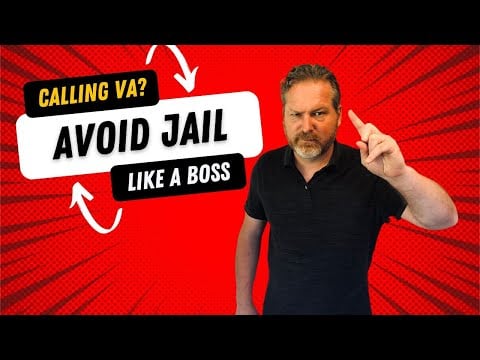Navigating Legal Boundaries: Effective Communication with Veterans Affairs
The Case of Mark Williams Jr.: A Cautionary Tale
The video discusses the case of Mark Williams Jr., a Texas veteran who faced legal consequences after his communications with various VA call centers. Over several months, Williams made threats against VA employees, leading to an investigation by the VA Office of Inspector General and prosecution by the Department of Justice. This case serves as a stark reminder of the serious implications that can arise from inappropriate communications with federal employees.
Key Strategies for Lawful Communication
- Avoid Making Threats: The foremost advice from Krause is clear: never make threats, especially death threats, against VA employees or anyone else. Such actions are illegal and can lead to severe consequences, including investigation, prosecution, and potential jail time.
- Be Aware of Recording Practices: It’s important to remember that your calls to VA call centers may be recorded. Everything said during these calls can be used in legal proceedings, so it’s crucial to be mindful of your words.
- Maintain Professionalism: Professionalism goes a long way in ensuring productive and legal interactions with VA call centers. Keeping communications respectful and focused can help in effectively conveying your needs and concerns.
The Legal Implications of Threats
Krause emphasizes the gravity of making threats over communication channels. In the case of Mark Williams, his threats led to a guilty plea with potential penalties including up to five years of jail time and a fine of up to $250,000. This example illustrates the severe legal repercussions that can result from threats made during calls to VA facilities.
Conclusion: Navigating VA Communications with Care
The advice from Benjamin Krause serves as a vital guide for veterans interacting with VA call centers. By understanding the legal boundaries and maintaining a professional demeanor, veterans can avoid the pitfalls that led to the unfortunate circumstances faced by Mark Williams Jr. It’s not just about staying within the law; it’s about ensuring that communication with VA services is effective, respectful, and geared towards getting the help and support veterans need.
FAQs: Effective Communication with Veterans Affairs
- What should I do if I feel frustrated or angry during a call with a VA call center?
- If you feel overwhelmed, it’s important to take a moment to calm down before continuing the conversation. Remember that the person on the other end is there to help. If needed, politely ask if you can call back later, or request to speak with a supervisor for further assistance.
- Are all calls to VA call centers recorded, and can these recordings be used legally?
- Yes, most calls to VA call centers are recorded for quality assurance and legal purposes. These recordings can be used in legal proceedings, so it’s crucial to be mindful of what you say during these calls.
- How can I effectively communicate my needs without getting into legal trouble?
- Be clear and concise about your needs and concerns. Avoid using aggressive or threatening language. If you’re unsure how to phrase your concerns, consider writing them down before the call. Always remember that the goal is to seek help and resolution, not to escalate the situation.
- What legal consequences can arise from making threats to VA employees?
- Making threats, especially death threats, against VA employees or any federal employees is a federal offense. It can lead to serious legal consequences, including criminal investigation, prosecution, fines, and even imprisonment.





Ben,
I agree on the issue of using language effectively because that is the one thing the VA demands from us up front– they control the Semantic Interface. I do not agree with George Harolds about not communicating– that would be giving up my rights to speak and representation.That’ semantic interface problem is the reality and it is meant to be hard.
On the other hand , if you get a communication from the VA that you disagree with , you can call the 1-800 # and make a statement that will be added to your file. You can also follow up with VA 21-4138, a form that allows you to make a statement or add evidence and upload supporting docs, evidence, ect.
When the VA publishes statements about your condition in the ratings documents that are untrue or oppose your claims , You must push back and call the rater on it in writing and do not give up. Demand a correction by informing them they are incorrect, upload your statement demanding a correction to the error and upload any evidence with the form 21-4138. If you are not computer literate, get help from someone who can assist with the 21-4138 and don’t forget to put you SS# on page 2 at the top of the page, then sign it. Persistence and patience are needed because working with the VA really is hard on Veterans and their Families ( my own personal journey with the VA spans 50+ years and it’s still not finished)
Sorry , guys if this seems like a load of work but I do not see another way around the problem.
Tips for communicating with them: DON’T! Get benefits and get out. If possible, relocate to a country that’s not a total hell hole but that’s not as right wing as the USA. Somewhere with functional government and functional systems. Certain people in Congress won’t even authorize funds for border security so they can screen a higher percentage of vehicles for deadly drugs. What the hell do you think will happen to you if you continue to go to VA? Eventually, you’re gonna get fucked. ONLY a matter of time. It’s a joke.